- Details
- Category: Senator Dave Koehler News
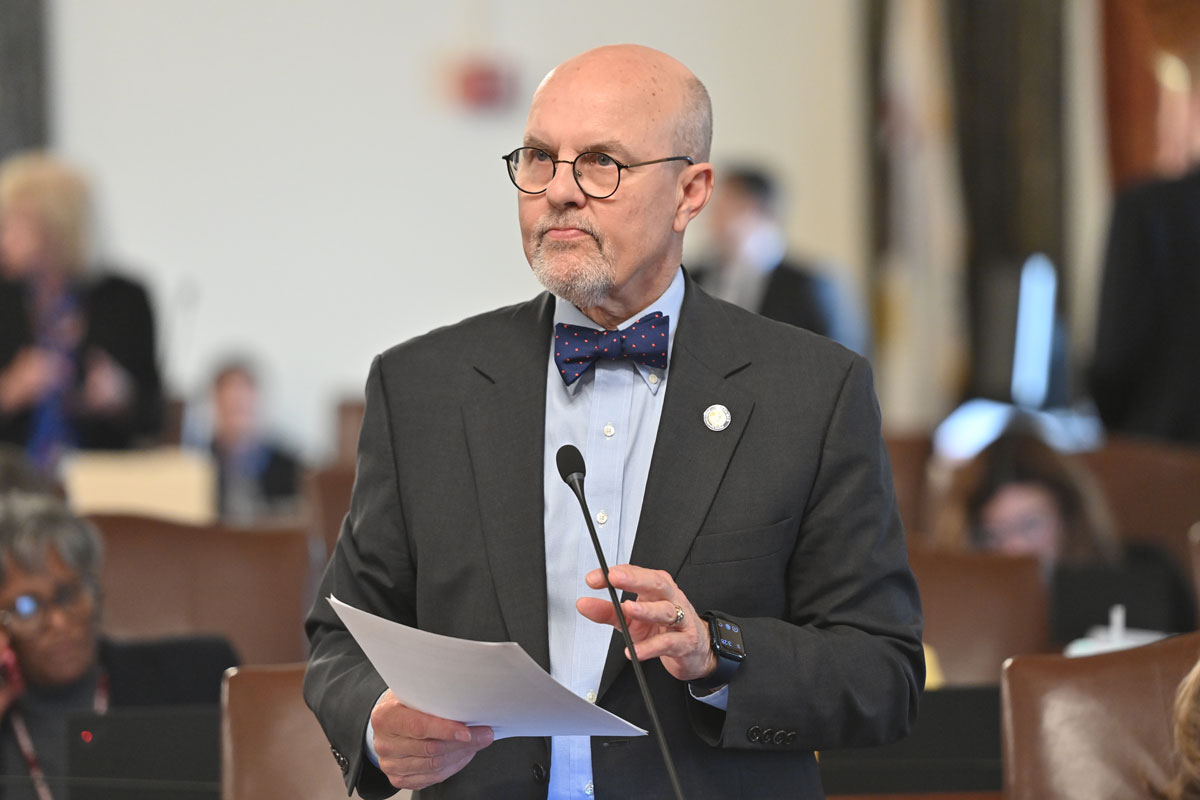 SPRINGFIELD – A majority of food on grocery store shelves is purchased out of state, which has led State Senator Dave Koehler to pass a law to make Illinois food more readily available on local store shelves.
SPRINGFIELD – A majority of food on grocery store shelves is purchased out of state, which has led State Senator Dave Koehler to pass a law to make Illinois food more readily available on local store shelves.
“Our farmers play a significant role in our economy, and we should make every effort to have their produce in stores across our communities,” said Koehler (D-Peoria). “This law supports our family farmers and gives residents access to fresh local produce.”
Koehler’s law directs the Illinois Department of Agriculture to amplify local food processing, collection and distribution within the state through grants. Eligible applicants include farms, co-ops, process facilities, food businesses and hubs with fewer than 50 employees, as well as Illinois nonprofit organizations and local governments.
Read more: More Illinois-grown food coming to stores thanks to Koehler law
- Details
- Category: Senator Mike Porfirio News
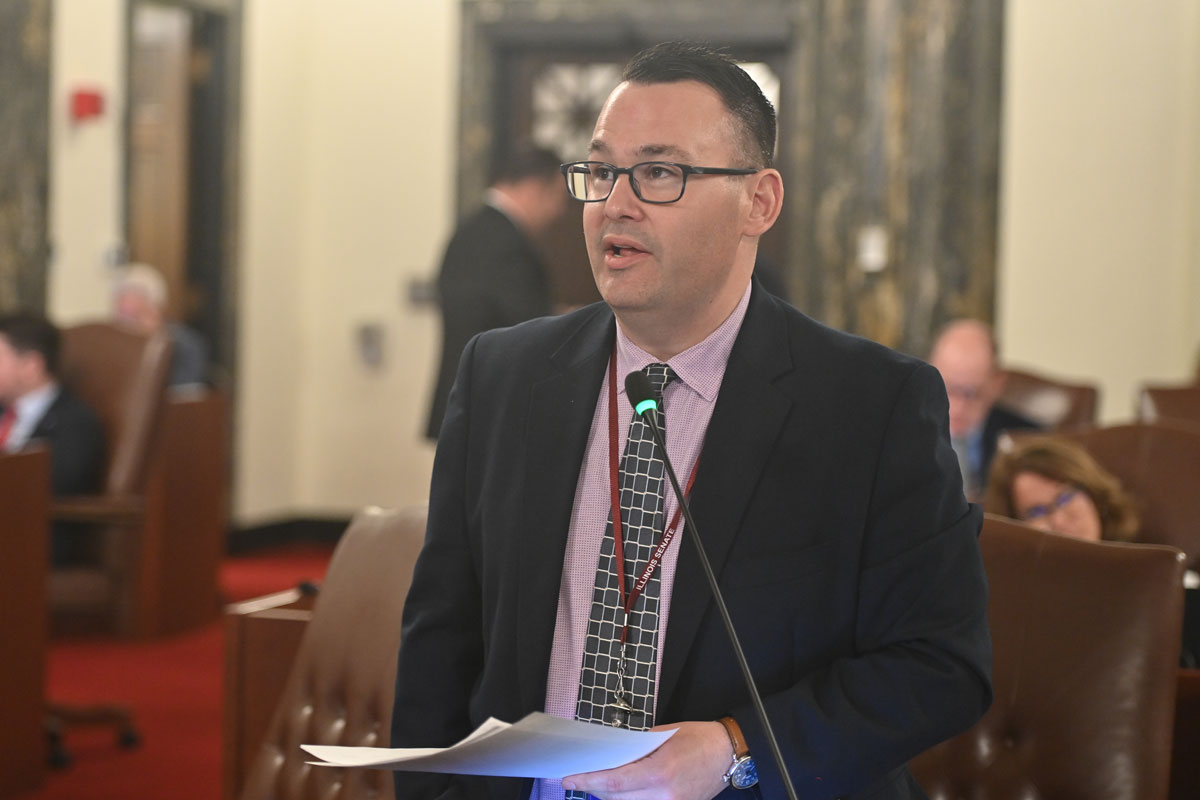 SPRINGFIELD – To protect our nation’s veterans from predatory business practices, State Senator Mike Porfirio and State Representative Stephanie Kifowit championed a new law combating businesses using deceptive practices to target veterans and their benefits.
SPRINGFIELD – To protect our nation’s veterans from predatory business practices, State Senator Mike Porfirio and State Representative Stephanie Kifowit championed a new law combating businesses using deceptive practices to target veterans and their benefits.
“Our veterans are true American heroes and they deserve to have protections in all facets of their lives, especially when it comes to their hard-earned benefits,” said Porfirio (D-Lyons Township), a U.S. Navy veteran. “By protecting our veterans from exploitation, we’re making certain they have the support and respect they deserve and taking a crucial step forward in honoring their dedicated service.”
- Details
- Category: Senator Karina Villa News
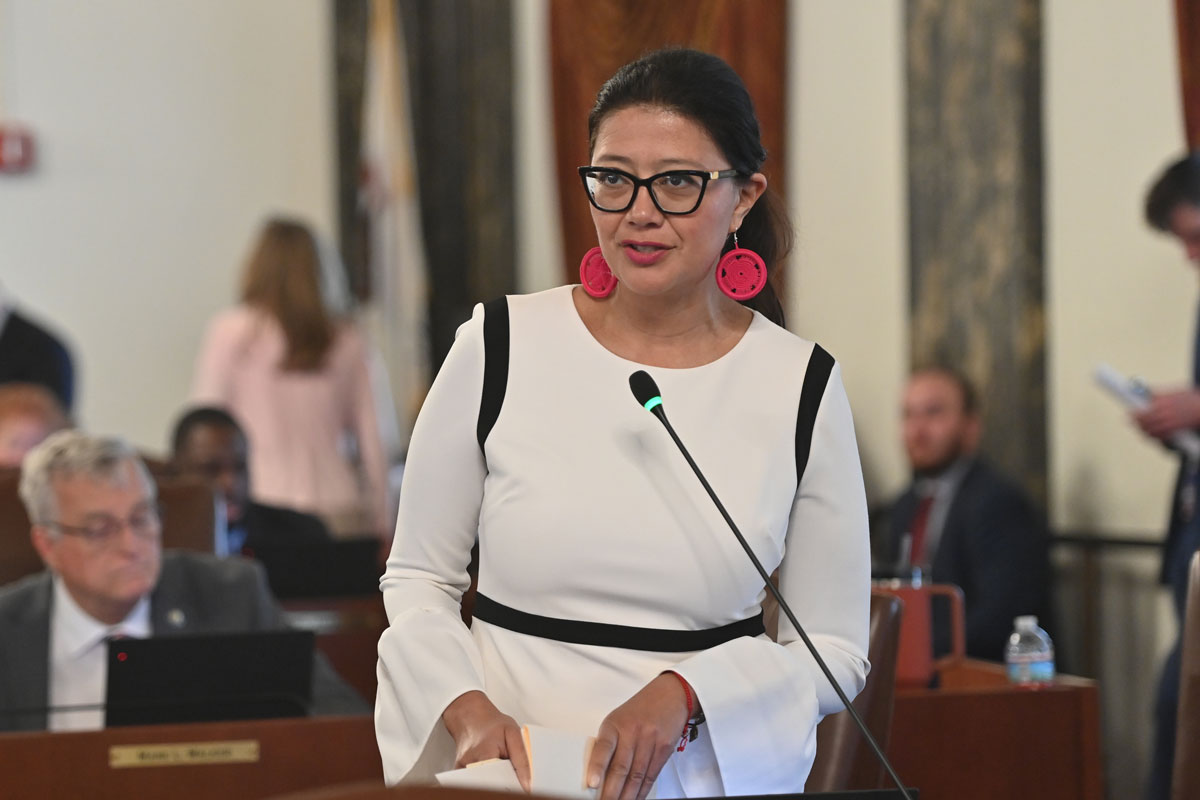 SPRINGFIELD – Under the Language Equity and Access Act, a new law championed by State Senator Karina Villa, individuals whose primary language is not English will have access to essential state services.
SPRINGFIELD – Under the Language Equity and Access Act, a new law championed by State Senator Karina Villa, individuals whose primary language is not English will have access to essential state services.
“Our diverse communities have consistently shared their challenges when accessing essential state services due to language barriers that sometimes make an already confusing process much more difficult,” said Villa (D-West Chicago). “State agencies should be equipped to provide services to any resident, regardless of their proficiency in English.”
- Details
- Category: Senator Julie A. Morrison News
 SPRINGFIELD – To ensure consistent quality of care for residents when their nursing home changes ownership, State Senator Julie Morrison championed a new law requiring facilities to develop comprehensive transition plans.
SPRINGFIELD – To ensure consistent quality of care for residents when their nursing home changes ownership, State Senator Julie Morrison championed a new law requiring facilities to develop comprehensive transition plans.
“Nursing home residents should always receive high-quality care, even during facility ownership transitions” said Morrison (D-Lake Forest). “This law requires transfer plans from current owners to new owners to ensure nothing gets over looked.”
Senate Bill 3115 will require owners of a facility to submit a transition plan detailing how resident care and appropriate staffing levels will be maintained throughout the process of shifting ownership.
- Details
- Category: Senator Kimberly A. Lightford News
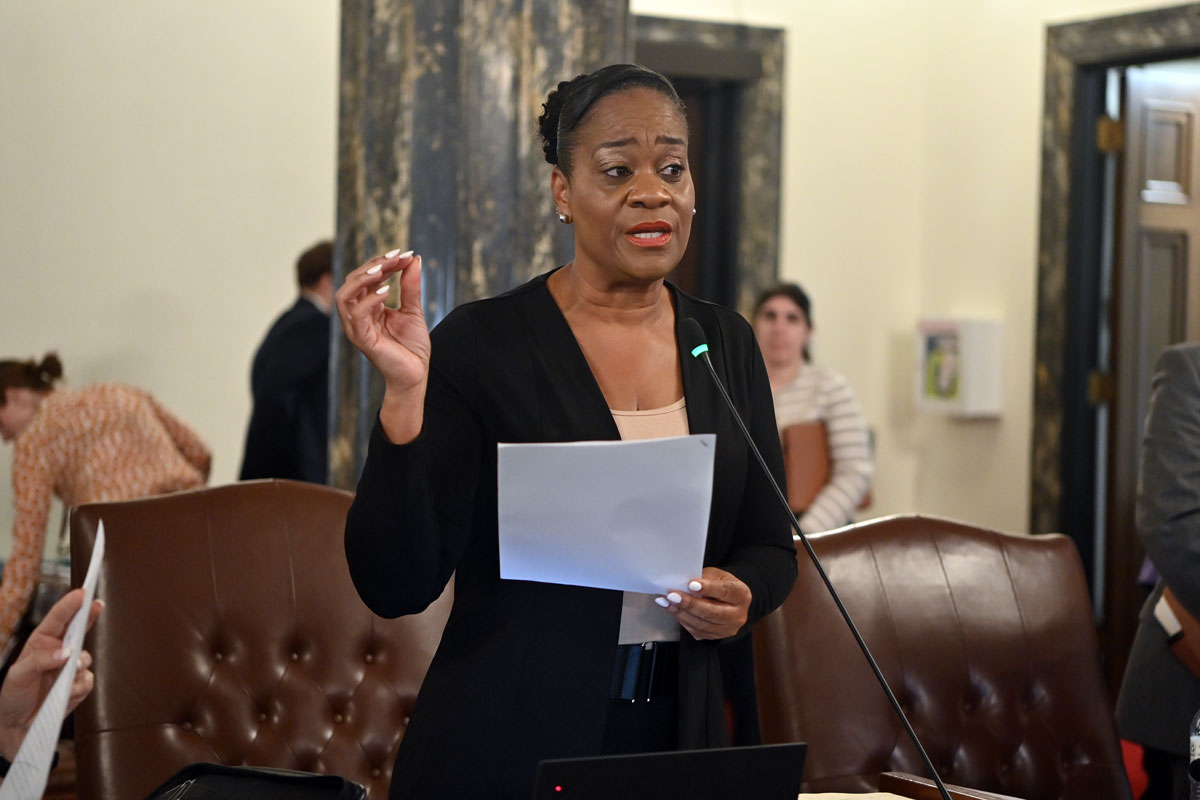 MAYWOOD – Senate Majority Leader Kimberly A. Lightford is working to transform how Illinois funds its higher education system through newly-filed legislation that would take a student-centered approach.
MAYWOOD – Senate Majority Leader Kimberly A. Lightford is working to transform how Illinois funds its higher education system through newly-filed legislation that would take a student-centered approach.
“Despite education’s paramount importance, the disparity in funding among higher educational institutions remains dreadfully evident,” said Lightford (D-Maywood). “This imbalance not only undermines the principle of equal opportunity but also hampers our collective progress as a society.”
Lightford was instrumental in creating the Commission on Equitable Public University Funding in 2021. Over the last two years, the 30-person commission studied if public institutions of higher education are in dire need of a new funding model when serving underrepresented and historically underserved student groups, including Black and Brown students, as well as students from low-income families.
Read more: Lightford fights for equitable funding for higher education
- Details
- Category: Senator Bill Cunningham News
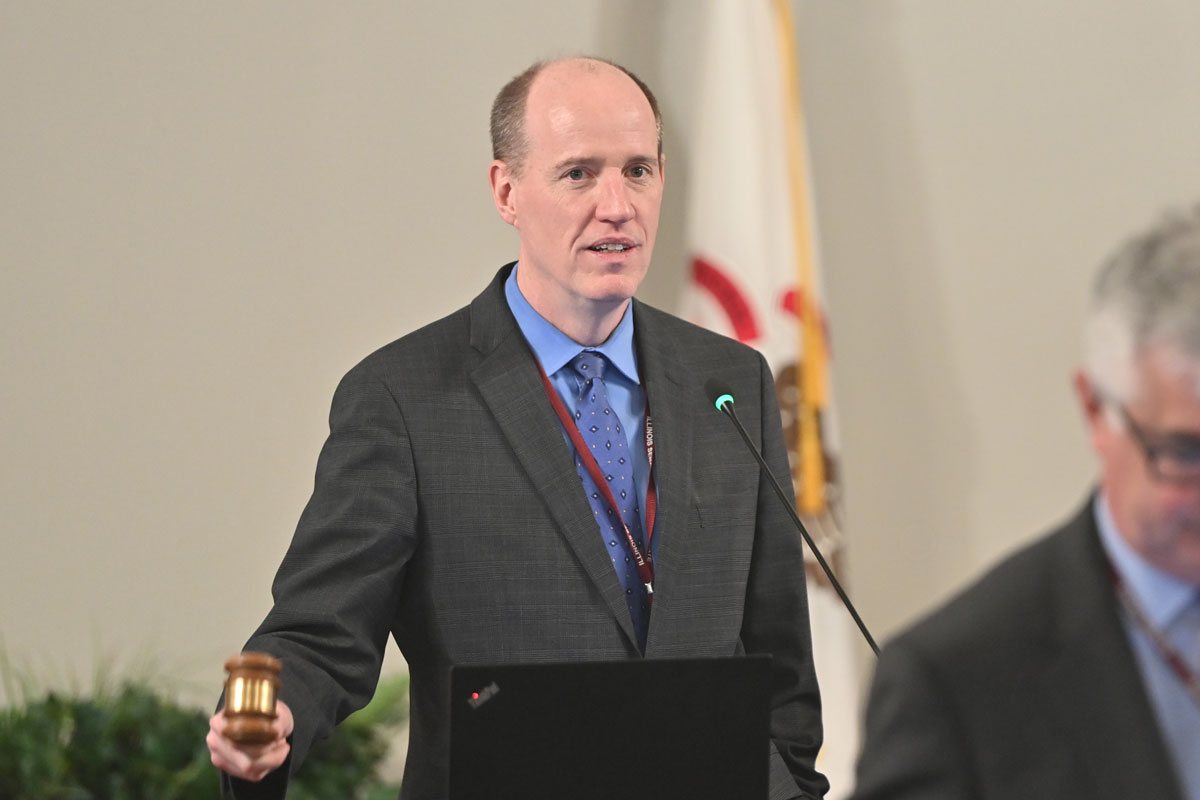 SPRINGFIELD – State Senator Bill Cunningham’s measure that updates liability guidelines in the Biometric Information Privacy Act was signed into law on Friday.
SPRINGFIELD – State Senator Bill Cunningham’s measure that updates liability guidelines in the Biometric Information Privacy Act was signed into law on Friday.
“In order for Illinois to continue being a leader on biometric protections for consumers, these changes were necessary,” said Cunningham, a Democrat who represents portions of Chicago and the Southwest Suburbs. “Not only did we preserve protections in BIPA, we made sure to clarify damages so businesses in our state are not crushed by penalties for violation.”
Cunningham’s measure limits the number of claims accrued should an employee bring a lawsuit against a company for a violation of BIPA. If a certain biometric identifier is collected by the same employer in the same manner, only one violation would accrue. This is a change from the previous interpretation of BIPA, where claims were accrued on a per-collection basis, which resulted in hundreds of claims on a repeated violation.
Read more: Updates to Illinois’ biometric privacy signed into law thanks to Cunningham
- Details
- Category: Senator Doris Turner News
 SPRINGFIELD – A new law spearheaded by State Senator Doris Turner will increase public safety by suspending EMS professionals who have been charged with a crime while performing their duties.
SPRINGFIELD – A new law spearheaded by State Senator Doris Turner will increase public safety by suspending EMS professionals who have been charged with a crime while performing their duties.
“We have to hold bad actors accountable,” said Turner (D-Springfield). “People need to know that those who respond to an emergency will prioritize their safety.”
Turner’s law will allow the director of the Illinois Department of Public Health, or their designee, to determine if the suspension of an EMS professional should extend statewide. This will apply in situations when an EMS professional has been charged with a crime while performing their official duties and continuing to practice poses the possibility of harm to the public.
“By putting these guardrails in place, we are ensuring public safety is at the forefront of our priorities,” said Turner.
Senate Bill 3134 was signed into law Friday and is effective immediately.
- Details
- Category: Senator Laura Murphy News
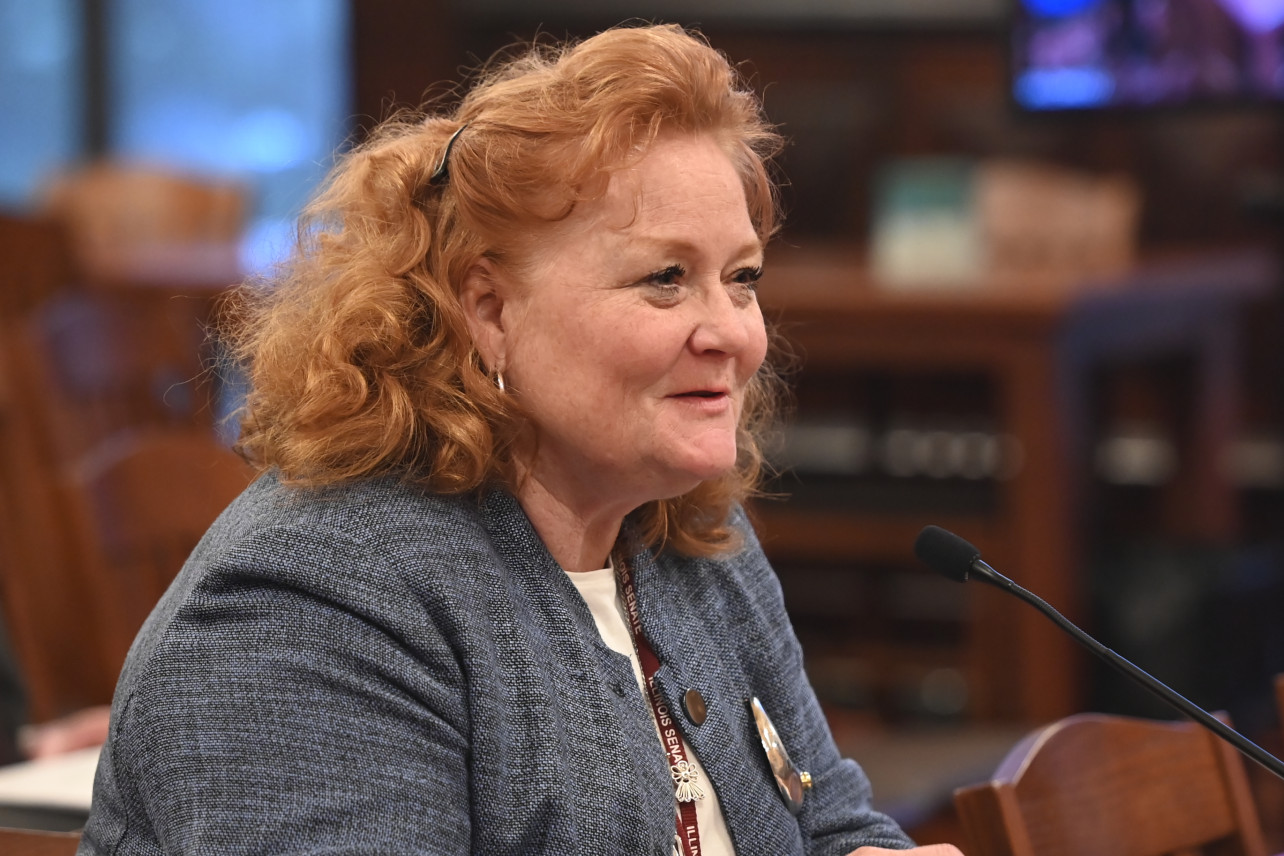
SPRINGFIELD – Relief from drug shortages is coming soon for Illinoisans with prescription medications, thanks to a new law championed by State Senator Laura Murphy.
“No one wants to have to call every pharmacy in their area just to see if their medication is in stock. This process takes precious time, and some pharmacies won’t give out that information over the phone,” said Murphy (D-Des Plaines). “What’s worse is when generic medication is unavailable while brand-name medication is, the patient’s insurance often times won’t cover it. This can result in patients paying tens or hundreds of dollars out-of-pocket just to maintain their health.”
Murphy’s measure will require group health insurance and managed care plans to cover brand-name prescription drugs if the generic drug is unavailable during a nationwide shortage.
Read more: Murphy law combats prescription medication shortages
More Articles …
Page 18 of 693












 © 2025 Illinois Senate Democratic Caucus
© 2025 Illinois Senate Democratic Caucus